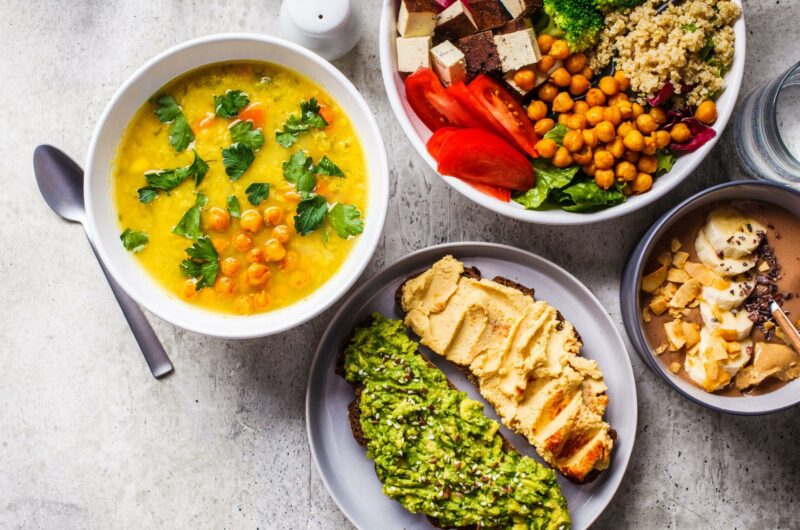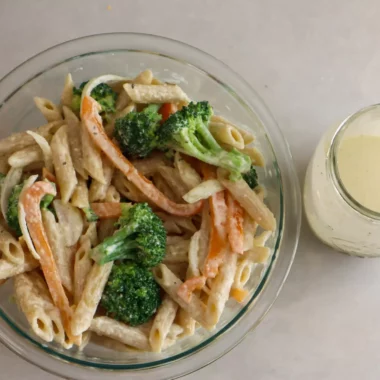The phrase “eat in moderation” appears everywhere. Eat bacon in moderation. Eat cakes and cookies in moderation. Even if you look at the food pyramid, you will see that it says to eat sugars sparingly, which is just a clever way of saying eat sugar in moderation.
Let’s be clear; I do not have a problem with eating food in moderation. After all, consuming too much of any food is never a good idea. However, my problem is that everyone always tells you to eat food in moderation, but no one ever shows you how to eat food in moderation.
What Does It Mean To Eat In Moderation
Some people believe eating in moderation is consuming less of your favorite foods. However, I beg to differ. Moderation means avoiding extreme behavior. In other words, eating in moderation means not eating foods in excess.
For example, eating pizza every day would be considered an extreme eating behavior. Eating pizza once a week or once every two weeks would be considered eating in moderation.
Why Is Eating In Moderation Important
Just like food can have a beneficial effect on the body, it can have a detrimental effect on the body. The goal of eating in moderation is not to remove certain foods from your diet. The goal is not to overindulge.
Eating too many fatty, sugary, or foods high in unrefined carbs can lead to the development of diseases like stroke or cardiovascular disease.
This is why practicing eating in moderation is so important. Eating in moderation helps you set boundaries which prevent you from overdoing it in the long run.
What Are The Benefits Of Eating In Moderation
Eating in moderation can help you lose weight, manage your weight, and stay healthy. However, this does not mean that only eating in moderation can help you achieve these things.
Practicing mindful eating, as well as creating a balance in your diet and meal planning, can help you lose weight, manage your weight and remain healthy.
How Do You Practice Eating In Moderation
There’s no one-size-fits-all when it comes to eating in moderation. Eating in moderation means different things for different people. Every individual has different dietary needs.
What may be considered excessive for one person may be considered insufficient for another person. For example, 56 grams of protein per day may be considered excessive for women, but it is considered adequate for men. Moderation must be tailored to the individual.
These are a few ways you practice eating in moderation.

Know Your Recommended Food Intakes
To eat in moderation, you must know how much food you can consume. For example, the recommended daily amount of carbs range between 45% and 65% or 225 grams and 325 grams of carbs for a person who eats 2000 calories daily.
In contrast, a person who eats 1500 calories a day, should eat 191 grams of carbs. The recommended daily intake of specific nutrients like carbs may vary, depending on your age, gender, and food goals.
You can easily find out your dietary requirements by doing a little research. Look for the recommended daily intakes of fruits, grains, protein, vegetables, and dairy. Additionally, research how many calories you should consume every day.
After you find out your daily requirements, you can use a food-tracking app to monitor what you consume as well as how much food you eat. You can then make adjustments like including more vegetables or fruit in your diet and limiting foods with high levels of unrefined carbs.
Set Boundaries
Eating in moderation is all about setting boundaries. We all have our favorite foods that aren’t necessarily the healthiest options.
For example, macaroni and cheese and fries are two of my favorite foods. However, I do not eat them often. They are unhealthy and may lead to health issues over time if consumed too much. This is why setting food boundaries is crucial.
You can use several techniques to set food boundaries. First, you can limit the number of times you eat specific foods.
Instead of eating fries or burgers 1-2 times a week, you can eat them once a week. Alternatively, you can also eat burgers or fries once every 2-4 weeks or once every 2 months.
Second, you can make healthier versions of your favorite foods. I know what you’re thinking, it’s not going to taste the same. However, there’s always a way to make healthier versions of your favorite foods.
Let’s say, mango ice cream is your favorite ice cream. You can make a healthier version of mango ice cream by using coconut milk as the base, sugar-free sweetener to sweeten it, and homemade mango puree so it has a strong mango flavor.
Typically, 1 serving of mango ice cream has 290 calories, including 35 grams of carbs. My healthier dairy-free, sugar-free mango ice cream recipe has 89 calories and 14 grams of carbs. The calories have been cut by more than 50%, and it still tastes delicious.
Therefore, you can enjoy your favorite foods in a guilt-free way.

Third, you can make these foods off-limits. Let’s be clear; this is the hardest option.
These are your favorite foods, so removing them from your diet will be difficult. It won’t happen overnight. It will take time.
To make restricting certain foods from your diet easier, you can start by limiting the number of times you eat this food, then gradually wean yourself off the food.
For example, if pizza is one of your favorite foods, start by limiting it to once a week for 1 month. Next, you can limit pizza to once a month or 1 once every 2 months. Gradually you will eat the food less and less until you won’t be eating pizza at all.
Eat Mindfully
Mindful eating goes hand in hand with eating in moderation. Mindful eating involves paying attention to physical and emotional cues before, while, and after you consume food.
To practice mindful eating, you remove distractions such as your phone or watching tv when you are eating. Limiting these distractions helps you pay attention to your feelings while eating. More importantly, it will be easier to stop eating when you feel full.
Plan Your Meals
As I mentioned above, no one ever shows you how to eat in moderation. That’s where meal planning comes in.
Meal planning is an essential tool that helps you eat in moderation. Just like the name implies, meal planning means planning your meals in advance.
It is a plan you can create using your schedule as well as the foods you have on hand, seasonal items, favorite foods, or foods on sale.
Following a meal plan will help you balance your meals. For instance, if you add cake to your meal plan, you can add a salad for lunch and fish and vegetables for dinner.
Ultimately, meal planning will help you balance your meals so you are not consuming too much of one food.
Make Room For Treats
Speaking of meal planning, plan to include a few treats in your meals. You will only stay motivated for so long. You will eventually break down and indulge in something unhealthy.
It’s best to plan to eat smaller amounts of your favorite treats a few times a week. Planning for treats will ensure you don’t overindulge.
Be Aware Of Trigger Foods
Trigger foods are the dishes we have a hard time eating small portions of. For example, if you have trouble eating 1 cookie or a scoop of vanilla ice cream, cookies and ice cream are your trigger foods.
While you can learn to control how much you eat, it may be better to control when you eat these foods. For example, you can eat cookies or ice cream once a month instead of 2-3 times a week.
Eating In Moderation Is Not A Free Pass
Eating in moderation does not mean you can eat whatever you want to when you feel like it. There’s nothing wrong with a treat now and again. But the trick is to eat small portions and balance them with healthy foods.
Forgiveness Is Key
Everyone messes up sometimes. What’s important is not to think about messing up over and over again.
Forgive yourself and show grace to others when they mess up. Tomorrow is a brand new day. You can get back to eating in moderation the next day.
In Summation
Eating in moderation is essential. Now that you know how to practice eating in moderation, you can begin your journey to leading a healthier lifestyle.






